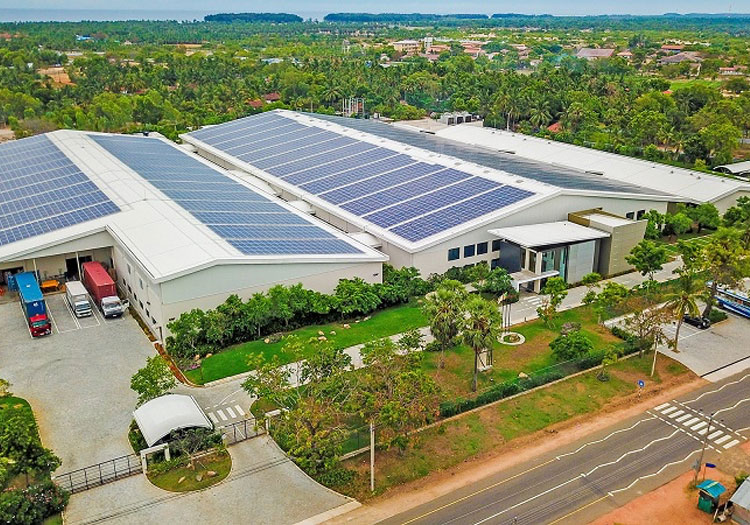
Brandix scores a world first in achieving ‘Net Zero Carbon’ status for its manufacturing facility in Batticaloa
BATTICALOA, June 2019: Leading Sri Lankan apparel firm Brandix has announced that its manufacturing facility in Batticaloa is the “world’s first” to achieve ‘Net Zero Carbon’ status, a certification that signifies a factory has “completely neutralised its environmental impact through carbon dioxide emissions by being highly energy efficient and using on-site renewable energy resources”.
Recognised by the World Green Building Council (WGBC), the ‘Net Zero Carbon’ certification is issued by the Leonardo Academy, and the Brandix achievement comes as countries around the world examine ways in which they could reduce the carbon footprint and minimise their contribution towards drastic climate change.
The certification comes on the heels of another honour bestowed on the Batticaloa plant of Brandix – it had previously achieved the highest Leadership in Energy and Environmental Design (LEED) Platinum rating in Sri Lanka — and second highest globally.
Commenting on the latest achievement, Ashroff Omar, Group Chief Executive Officer of Brandix, said: “It is truly a monumental milestone for us, therefore, to secure another world first, by achieving Net Zero Carbon status for our factory in Batticaloa, as the first Sri Lankan company and apparel manufacturer to join in on the World Green Building Council Commitment. Striving for excellence at every stage of our business, we will continue to work towards our goals in Environmental Sustainability on an inspired journey to lead the way and become a global benchmark.”
Cristina Gamboa, Chief Executive Officer of the World Green Building Council, said: “We welcome the sustainability leadership action demonstrated by Brandix in joining the Net Zero Carbon Buildings Commitment. As both the first Sri Lankan company and the first apparel manufacturer to commit to net zero carbon buildings across its operations, Brandix is setting an example in leading the transition towards net-zero buildings in Sri Lanka and within its industry.”
Brandix has also pledged that all of its factories located in Sri Lanka, classified as “under the company’s direct control,” will be Net Zero Carbon in terms of operations by 2023. This, the firm explains, will be achieved by adding solar and biomass to its current energy portfolio and the installation of technologically advanced and energy efficient air compressors, HVAC systems, sewing machines, lighting and building fabric.





